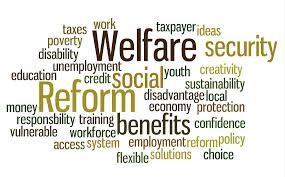
Policy practice is an essential responsibility for social work. Policy involvement on the federal, state, local, and program levels can help recognize how policies affect discrimination on the micro, mezzo, and macro levels. Due to my passion for advocacy and promoting social, economic, and environmental justice, I will actively engage in policy practice. It is imperative to be of a political mind and voice to understand how these agendas directly affect individuals’ well-being. I will put forth conscious effort into understanding my clients’ needs and forming an advocacy plan accordingly. My professional focus will include learning, evaluating, reforming, and creating new policies that serve my clients appropriately.
5.1: Advocate with and inform stakeholders to impact policy change.
Course Evidence: I utilized the Repeal Tennessee Protest Law of 2020 Phone and Email Script created as a part of the comprehensive policy action plan my group created in Advanced Policy class to contact my local Tennessee legislators requesting them to consider supporting the repeal of the Tennessee Protest Law. This script was intended to give Tennessee citizens a guide to easily reach out to legislators to express their disagreement with the injustice of the Protest Law.
Field Evidence: I met with Omni Visions’ upper management to propose a new policy concerning court-mandated therapeutic visitation with biological families working towards reunification. Since most Omni workers providing this type of visitation are only bachelors level, I proposed that the workers complete extensive training and be directly supervised by their masters level team leader or the child’s therapist for the first three visitation sessions. A part of the proposed policy also includes keeping detailed documentation on each visit that will help reinforce the accountability of the worker and closely monitor progress towards reunification. I also joined a meeting with DCS Extension of Foster Care (EFC) workers and Independent Living Specialists to discuss the limits often experienced with the EFC policy concerning only certain school or trade programs being approved. Many youth choose to not participate in the program when the trade program of their choice makes them ineligible for program services.
Additional Evidence: My Advanced Administrative Practice: Program Development group presented our Community Connect Project for stakeholders to understand the need for policy changes concerning the Chattanooga Police Department. Our group reflected components of the stakeholder theory and how it can be applied to nonprofit sectors when creating the project by emphasizing the importance and value of all identified stakeholders. The project proposes mandatory diversity training for officers, implementation of social workers to respond to non-emergency calls (community policing model), and documentation of non-violent de-escalation techniques to be included on each police report and citation. My group felt that each of these policy changes could create a more supportive relationship with the community and decrease the racial discrepancies found in Chattanooga arrests and the use of force during police encounters.
5.2: Develop and implement a policy and/or advocacy plan.
Course Evidence: In my Advanced Policy class, I heavily contributed to a group project that developed a comprehensive policy action plan that advocated for the Repeal of the Tennessee Protest Law of 2020. Tennessee passed the law during a time that the state and world were exercising their rights to protest for the unjust treatment of African Americans following George Floyd’s death. The protest law enforced additional restrictions and legal repercussions for public protest gatherings. A key part of the new policy was that a felony charge would be given for any protestor to camp overnight on state property. I created a policy brief and fact sheet for the group’s policy action plan too.
Field Evidence: I joined a small group of Omni corporate employees that focused on advocacy plans to improve foster youth preparation and transition into young adulthood and independent living. The group decided to run a pilot program of a new assessment named Kuder and to meet with Omni representatives to advocate for an independent living specialist to be employed at each Omni location. This position would allow for more monitoring and implementation of independent living skills training that may allow for foster youth to be better prepared or more willing to join independent living programs once they turn 18. I also spent a great deal of time working one-on-one with foster youth as they prepared to age out of the foster care system. I collaborated with each youth and team to create an advocacy plan that allowed them to enter EFC or set them up for a successful start in their independent living as an adult.
Additional Evidence: I worked with a foster youth that had just turned 14 in my practicum setting. The youth’s foster family chooses to not adopt but is open to making the placement a forever home for the child. A DCS foster care policy is that when a youth is 14 or older, that youth has the power to decide whether they want the team to actively recruit adoptive homes for them. I called a foster care child and family team meeting (CFTM) to give the youth the opportunity to voice that she did not want to be adopted. A result of the meeting is that the child will no longer be in jeopardy of having to switch placements for trial purposes of homes that show interest in adopting her. The foster placement plans to sign a Planned Permanent Living Arrangement (PPLA) agreement when the youth is 16. The PPLA will serve as her permanency plan at that time. The youth will still have the opportunity to change her mind about adoption at any time before her 18th birthday.